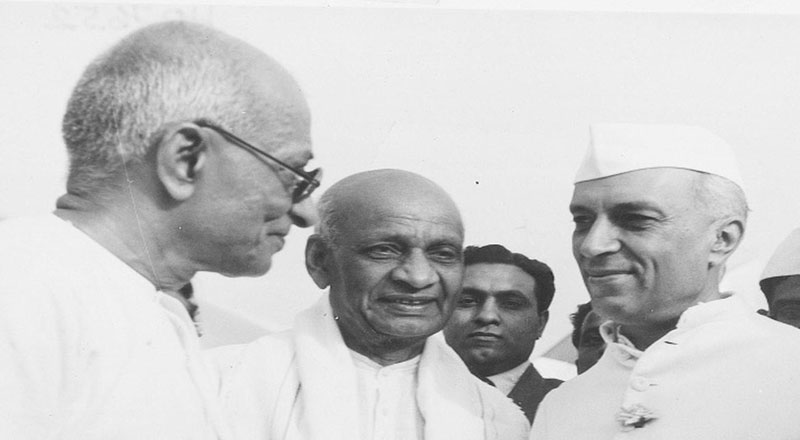A Nation’s Pledge to Democracy
November 26, celebrated as Constitution Day or Samvidhan Divas, holds a special place in India’s national calendar. This day marks the adoption of the Indian Constitution in 1949, a pivotal milestone in the nation’s democratic journey. While the Constitution came into effect on January 26, 1950, transforming India into a republic, Constitution Day honours the architects of this comprehensive legal framework, particularly Dr. B.R. Ambedkar, the Chairman of the Drafting Committee. By reflecting on the Constitution’s values, India reiterates its commitment to justice, equality, and liberty, celebrating the foundation that continues to shape its democratic ethos.
The Historical Context of Constitution Day
The roots of India’s Constitution lie in the transformative aspirations of a post-colonial nation seeking sovereignty. The Government of India Act of 1935, introduced during British rule, underscored the need for a coherent legal framework to govern an independent and democratic India. In December 1946, the Constituent Assembly was formed under the leadership of Dr. Rajendra Prasad. Over the next two years, 11 sessions witnessed exhaustive debates and deliberations among the Assembly’s members.
The drafting process, spearheaded by Dr. Ambedkar, took two years, 11 months, and 17 days, culminating in the adoption of the Constitution on November 26, 1949. This monumental document became operational on January 26, 1950, the day India declared itself a republic. Originally observed as Law Day, November 26 was rechristened as Constitution Day in 2015 to spread awareness about the Constitution’s ideals and to honor its framers.
Dr. B.R. Ambedkar: The Architect of the Indian Constitution
Dr. Bhimrao Ramji Ambedkar, often referred to as the “Father of the Indian Constitution,” was instrumental in shaping a document that balanced diverse cultural, social, and political needs. A staunch advocate for marginalized communities, Dr. Ambedkar ensured that the Constitution enshrined principles of equality, justice, and fraternity. His commitment to creating an inclusive society resonates through provisions that guarantee fundamental rights and guide the governance of the nation.
The Significance of Constitution Day
Constitution Day serves as a reminder of the core democratic values that the Indian Constitution represents. Justice, liberty, equality, and fraternity—principles inscribed in the Preamble—continue to guide the nation’s governance and legal framework.
The day is also a tribute to the foresight of the Constituent Assembly and the tireless efforts of its members who navigated complex debates to draft a document reflective of India’s aspirations. Observing Constitution Day encourages citizens to reflect on their rights and responsibilities while fostering a sense of national integration and pride.
Through campaigns like “Hamara Samvidhan, Hamara Swabhimaan” (Our Constitution, Our Pride), the government emphasizes constitutional values, inspiring collective efforts towards an equitable and harmonious society.
How Constitution Day is Celebrated
Across India, Constitution Day is marked by a variety of events aimed at raising awareness about the Constitution. In schools, colleges, and public institutions, discussions and debates focus on its relevance and impact. The celebrations also highlight the legacy of Dr. Ambedkar, ensuring that future generations recognize his contributions.
The Central Hall of Parliament, where the Constituent Assembly once convened, becomes the focal point of the celebrations. This year, President Droupadi Murmu addressed a joint sitting of both Houses of Parliament, inaugurating a historic year-long commemoration of 75 years since the adoption of the Constitution. Prime Minister Narendra Modi attended the event, underscoring the enduring relevance of the Constitution in modern governance.
Highlights of this year’s observance included the release of a commemorative coin and stamp and books titled Making of the Constitution of India: A Glimpse and Making of the Constitution of India & Its Glorious Journey. The Prime Minister also unveiled the Indian Judiciary’s annual report (2023-24), emphasizing the interplay between constitutional principles and judicial integrity.
The Enduring Legacy of the Constitution
India’s Constitution is more than a legal document; it is the foundation of the country’s democratic identity. By ensuring the rights of individuals and defining the responsibilities of the state, it has facilitated India’s transformation into a diverse yet united nation. Constitution Day not only celebrates this legacy but also serves as a call to action—urging citizens to uphold its principles and strive for a fair, inclusive, and just society.
A Collective Commitment to Constitutional Values
As India celebrates Constitution Day, it is a moment to remember the foresight and resilience of its founders. The Constitution, a testament to the country’s democratic resolve, continues to guide its path toward progress and equity. By honoring this day, India reinforces its pledge to uphold the ideals of justice, liberty, equality, and fraternity—cornerstones of a vibrant democracy.
(With inputs from agencies)





